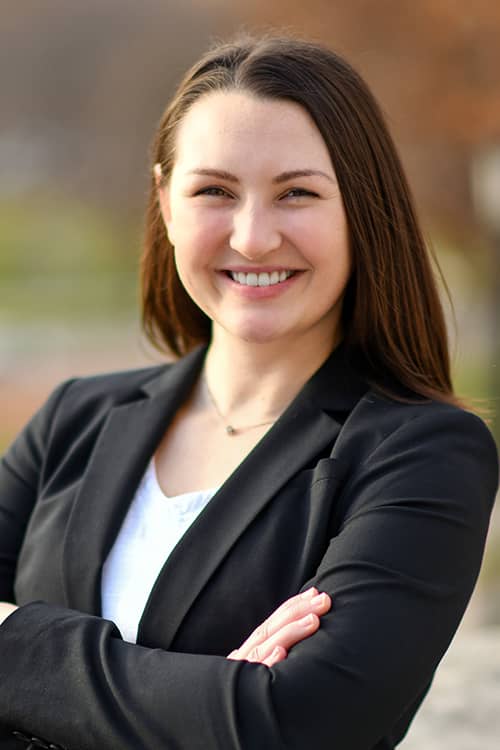
Caitlin Ward, Ph.D. student, Biostatistics
Models transmission of infectious disease
• Hometown: Iowa City, IA
• Faculty mentor/advisor: Dr. Grant Brown and Dr. Jacob Oleson
• What is your degree program and expected graduate date? I am currently pursuing a PhD in Biostatistics and plan to graduate in May 2021
• Please describe your research: My research focuses on creating more realistic models of infectious diseases to better estimate disease transmission and the effectiveness of interventions. I have developed an infectious disease modeling framework to account for false positive and false negative tests and I am currently working on a method to estimate an individual’s curve of infectiousness over the duration of their infection.
• In simple terms, why does this research matter? Increased understanding of the disease process is critical to preventing the spread of disease. Creating realistic models of infectious diseases aids researchers and public health organizations by more accurately assessing the success of various interventions and providing predictions of future transmission.
• How soon after starting at the University of Iowa were you able to participate in research? I was able to start participating in research in my first semester at the University of Iowa.
• How has being involved in research made you more successful at the University of Iowa?
Being involved in research has given me the opportunity to both apply what I have learned in the classroom to real applications and to explore new methods I would not have been exposed to otherwise. Research has also allowed me to gain experience in collaborative problem solving while working with investigators from a wide variety of disciplines.
• What are your career goals and/or plans after graduation? I plan to stay in academia to continue to pursue research while also having the ability to teach and mentor undergraduate and graduate scholars.
• Does your research have connections to or implications for COVID-19? Please explain. My work to incorporate diagnostic uncertainty in the modeling process for infectious diseases has direct applications to COVID-19 but needs to be expanded to account for the large presence of asymptomatic and undetected cases.
Banner location: online—
